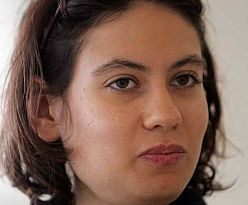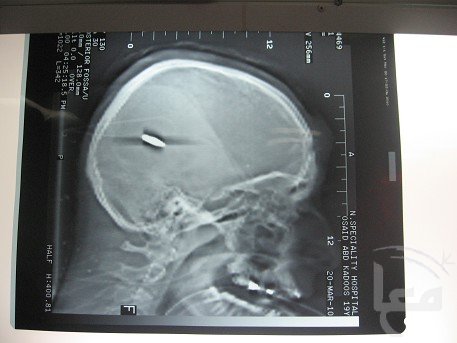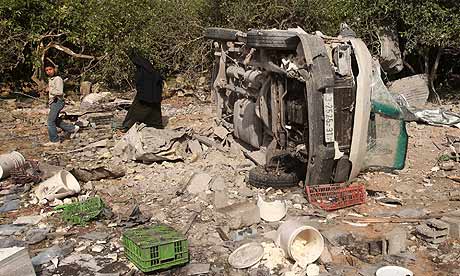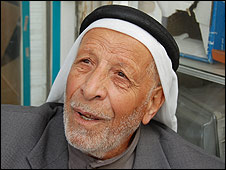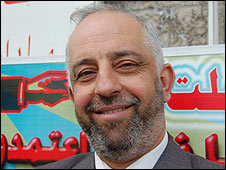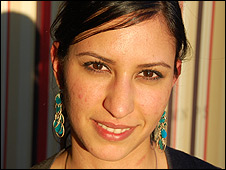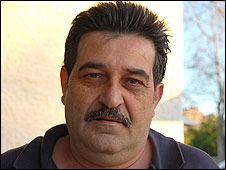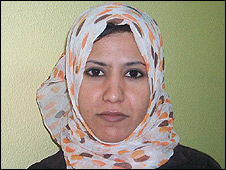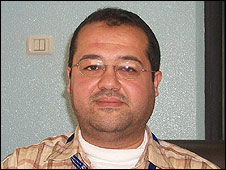EDITOR: The Nuclear elephant in the room
When creating a monster, one knows how it all starts, but hardly where it will end, as Dr. Frankenstein has found out. Now, after five years of careful incitement by Israel, and especially by Netanyahu, the Iran Nuclear Monster is alive and well, and is actually biting back at it unamused creator. By fanning the flames of this particular fire, and helping to make it such a central issue of the West’s agenda, all of a sudden Netanyahu finds himself being asked by his dinner-table partners: “so how is your nuclear bomb this morning?”. Not fair, is it? After all, all he wanted is to discuss the Iranian future nuclear capacity, so why would anyone wish to discuss Israel’s current nuclear capacity, unless they were antisemitic? Do Jews not have eyes? Can they not have bombs, sentiments, feeelings…
Well, it all went haywire very badly, like that other issue of the day, the Anat Kam story. All Israel wanted is to put on trial the ones who tell of its murders, and instead, the Internatiuonal Elders of Antisemitism, those horribhle people sourounding poor little Zionism , have made this a discussion of Israel’s continuing crimes! Is there no justice for the poor little war criminals?
Leading article: Israel’s nuclear ambiguity: The Independent editorial
Saturday, 10 April 2010
Given his determination to focus the world’s attention on the perils of Iran’s nuclear programme, Benjamin Netanyahu must have had very powerful reasons to pull out of next week’s nuclear security summit in Washington. In fact, the Israeli Prime Minister had two of them.
The lesser one, probably, was his desire to avoid another meeting with President Obama – one that might have highlighted not Tehran’s suspected drive to build a bomb, but the damaging rift with the US over Israel’s continuing settlements expansion in East Jerusalem. More important however, we suspect, was Mr Netanyahu’s fear that the 47-nation conference would have turned an unwelcome spotlight on Israel’s own undeclared nuclear arsenal.
By all accounts, Turkey and Egypt planned to raise the issue of Israel’s refusal to subscribe to the 1970 nuclear Non-Proliferation Treaty. This enables it to avoid international inspections, and thus maintain ambiguity about whether it has nuclear weapons. Israel is presumed to have anywhere between 80 and 200 such warheads, as an ultimate insurance policy against aggression.
But open acknowledgement would change the entire diplomatic equation in the region. Egypt and Turkey are leading a campaign for the Middle East to be declared a nuclear-free zone by the United Nations, not least because of their irritation with the double standards implicit in Israel’s non-participation in the NPT.
Neither wants Iran to acquire nuclear weapons – a development that, if unchecked, would almost certainly set off a nuclear arms race in the region. This would make the Middle East even more dangerous than it is now, and increase the risk of weapons technology, even an actual weapon, falling into terrorist hands. This risk is at the top of the Washington summit agenda.
But it understandably rankles the entire Arab world that the West turns a complaisant eye to Israel’s status as an undeclared nuclear power, while pressing other countries in the region to refrain from developing such technology. Not surprisingly, Iran makes this very argument to justify its own nuclear programme. One way and another, the crisis with Tehran will not be resolved without addressing Israel’s own capability.
Netanyahu Cancels Trip to U.S. Nuclear Summit: NY Times
By ETHAN BRONNER and ISABEL KERSHNER
Published: April 8, 2010
JERUSALEM — Prime Minister Benjamin Netanyahu of Israel has canceled his plans to attend the Nuclear Security summit meeting in Washington next week and will send a minister in his place, Israeli and American government officials said Thursday.
Prime Minister Benjamin Netanyahu will send his minister for intelligence affairs to a meeting.
Russia and U.S. Sign Nuclear Arms Reduction Pact (April 9, 2010)
The official declined to explain the last-minute cancellation. But Israeli news media reported that the prime minister feared that Muslim states were planning on using the occasion to raise the question of Israel’s nuclear arsenal. Israel is widely believed to be the only nuclear armed power in the Middle East, but it refuses to discuss the issue and has declined to join the Nuclear Nonproliferation Treaty.
The official said that Dan Meridor, the minister for intelligence affairs, would attend the meeting, which starts Monday.
In Washington, an administration official confirmed that Mr. Netanyahu had canceled his plans to attend. The official said the United States believed that the cancellation was linked to Israeli concerns that the meeting would be used by some countries to focus on Israel’s nuclear program and its refusal to sign the nonproliferation treaty.
Leaders of nearly four dozen countries are scheduled to attend the meeting, where President Obama is hoping to reach an agreement on securing vulnerable nuclear stockpiles in an attempt to keep them safe from terrorists. But that issue could be further complicated if attending leaders insist on broadening the conversation to include Israel’s reported arsenal. Many Muslim countries, while acknowledging their concern over Iran’s nuclear program, have insisted that the entire region must be made nuclear free.
The Israeli newspaper Haaretz on Friday quoted a senior Israeli official as saying, “In the last few days, we have received reports about the intention of several participant states to depart from the issue of fighting terrorism and instead misuse the event to goad Israel” over the treaty.
The summit meeting is not supposed to focus on individual nations, but the weapons of North Korea and the nuclear program of Iran, as well as possible sanctions against Iran, are expected to be discussed. Meanwhile, work on possible wording for new sanctions resolutions began at the United Nations on Thursday, where the five permanent members of the Security Council, along with Germany, met to begin discussions.
The Israeli prime minister’s cancellation also comes against the background of recent tensions between the Obama administration and the Netanyahu government over the terms for restarting peace talks between Israel and the Palestinians. The United States has asked Israel to take certain steps, and Mr. Netanyahu has yet to respond. The main disagreement is over Israel’s building in contested East Jerusalem.
Netanyahu’s nuclear no-show is victory for Arab pressure: The Guardian
Focus on Iran has boosted demands for a regional approach to disarmament of nuclear weapons in the Middle East
Ian Black, Middle East editor
Israel is estimated to have 150-200 atomic bombs, deliverable by aircraft, missile or submarine. Photograph: Havakuk Levison/Reuters
Binyamin Netanyahu’s decision not to take part in next week’s nuclear security summit in the US will be seen as a victory for mounting Arab and Muslim pressure on Israel over its most controversial and secret weapon.
Egypt has long campaigned on the issue of Israel’s atomic arsenal. Last month the Arab League called on the UN to declare the Middle East a nuclear-free zone. Saudi Arabia has been active too. Turkey also backs this demand as it offers to mediate between the west and Iran over Tehran’s nuclear programme.
Israel, constantly highlighting the danger from Iran, is estimated to have 150 to 200 atomic bombs, deliverable by aircraft, missile or submarine. Its programme was developed after France built a nuclear reactor at Dimona in the Negev desert in the 1950s. The so-called Samson option was seen by Israel’s first generation of leaders as designed to prevent another Holocaust – its bombs reportedly bearing the slogan “never again”.
Israel, unlike Iran or Saddam Hussein’s Iraq, never signed the 1970 nuclear non-proliferation treaty (NPT), which allows countries to develop civilian nuclear power in exchange for forgoing weapons – supposedly the preserve of the five permanent members of the UN security council.
India, Pakistan and North Korea have swelled the ranks of the weapons states, but unlike them, Israel has never come out of the closet, preferring a policy of so-called nuclear ambiguity – keeping its enemies guessing. Israel’s official line has always been that it would not be the first to use nuclear weapons in the Middle East.
Fears about Iran’s nuclear ambitions have reinforced domestic support and perhaps international tolerance for Israel retaining its arsenal. In diplomatic terms, this has long been a no-go area for the US, Britain and other western countries. But the focus on Iran has also boosted Arab demands for a regional approach to disarmament.
Last September, for the first time in 18 years, Israel, the US and other powers failed to prevent passage of a resolution by the International Atomic Energy Agency (IAEA) calling on Israel to sign the NPT and open up Dimona to international inspectors.
Egypt played a key role in negotiating the NPT in the 1960s and tried but failed to link the renewal of the treaty in 1995 to the creation of a nuclear-free zone. Syria, an ally of Iran, denies harbouring nuclear weapons ambitions, a issue that was dramatically highlighted in 2007 when Israeli warplanes destroyed an alleged reactor on the Euphrates.
“There is widespread resentment in the region towards the NPT and what it seeks to achieve, its double standards and lack of political will,” Egypt’s UN ambassador, Hisham Badr, said recently. “We in the Middle East feel we have, short of better word, been tricked into giving concessions for promises that never materialised.”
Israeli PM Netanyahu pulls out of US nuclear summit: BBC
Israel has never confirmed or denied that it possesses atomic weapons
Israeli PM Benjamin Netanyahu has cancelled a visit to the US where he was to attend a summit on nuclear security, Israeli officials say.
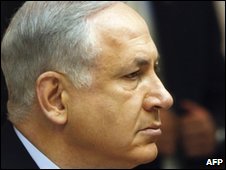
Mr Netanyahu made the decision after learning that Egypt and Turkey intended to raise the issue of Israel’s presumed nuclear arsenal, the officials said.
Mr Obama is due to host dozens of world leaders at the two-day conference, which begins in Washington on Monday.
Israel has never confirmed or denied that it possesses atomic weapons.
Israel’s Intelligence and Atomic Energy Minister Dan Meridor will take Netanyahu’s place in the nuclear summit, Israeli radio said.
More than 40 countries are expected at the meeting, which will focus on preventing the spread of nuclear weapons to militant groups.
Iran’s issue
According to Israeli officials, Turkey and Egypt are planning to call on Israel to sign the nuclear Non-Proliferation Treaty (NPT).
“These states intend to exploit the occasion in order to slam Israel,” said a senior Israeli source.
ANALYSIS
Paul Wood
Mr Netanyahu’s decision is on the face of it quite odd. After all, he must have expected some focus on Israel’s own nuclear programme at this conference.
Indeed, he acknowledged this possibility two days ago when he announced he would attend. He said that since Israel was not a terrorist or a rogue state, he had nothing to fear.
Certainly Israel is worried about pressure to join the Nuclear Non-Proliferation Treaty, or NPT. That is something which will increasingly become an issue since the Israelis have also announced their intention to build a civilian nuclear power station to deal with a severe electricity shortage.
But what about Israel’s nuclear weapons? The former US President, Jimmy Carter, who is certainly in a position to know, has said the Israelis have at least 150 warheads.
Mr Netanyahu has said his main priority in office is dealing with Iran’s supposed intentions to develop both warheads and long range missiles capable of hitting Israel. In these circumstances, Mr Netanyahu thinks it more vital than ever to protect his own weapons programme.
“The prime minister expressed his displeasure over these intentions, and he will therefore not be travelling to the summit.”
Mr Netanyahu has said his main priority is dealing with Iran’s supposed intention to develop both warheads and long-range missiles capable of hitting Israel.
Along with India, Pakistan and North Korea, Israel is one of just four states that have not signed up to the NPT, which has 189 signatories.
Earlier this week, President Obama unveiled the new Nuclear Posture Review – which narrows the circumstances in which the US would use nuclear weapons – outlining his country’s long-term strategy of nuclear disarmament.
On Thursday, the US president and his Russian counterpart, Dmitry Medvedev, signed a landmark nuclear arms treaty in the Czech capital, Prague.
That treaty commits the former Cold War enemies to reduce the number of deployed strategic warheads to 1,550 each – 30% lower than the previous ceiling.
The BBC’s Kim Ghattas in Washington says the cancellation of Mr Netanyahu’s Washington visit comes at a time of frosty relations between the two states.
The Israeli premier failed to see eye-to-eye with Mr Obama during his most recent US visit last month on the stalled Israeli-Palestinian peace process, our correspondent adds.
Washington criticised the building of Jewish homes in East Jerusalem, which prompted the Palestinians to pull out of US-brokered indirect peace talks.
There were also reports that one of Mr Netanyahu’s confidants called Mr Obama a “disaster” for Israel.
Binyamin Netanyahu pulls out of Washington nuclear weapons summit: The Guardian
Barack Obama considers plan B for Middle East settlement as relations between Israel and US deteriorate
Binyamin Netanyahu has cancelled his trip to Washington next week. Photograph: Sebastian Scheiner/AP
Relations between Israel and the US took another turn for the worsetoday after the Israeli prime minister, Binyamin Netanyahu, cancelled a trip to Washington next week amid reports that Barack Obama’s administration is seriously considering a Plan B for a Middle East peace settlement.
An Obama administration official said that the preference is still for talks between Israel and the Palestinians but admitted that if that failed, it will look at alternative options, including Obama setting out his own Middle East proposal for a comprehensive peace deal.
A group of senior foreign advisers, including former national security advisers Brent Scowcroft and Zbigniew Brzezinski, who give informal advice to the White House at regular meetings, recommended recently that if the attempts to get the Israeli-Palestinian talks under way continued to be stalled, the US should impose its own plan.
Netanyahu had been dithering over whether to attend a 47-nation summit in Washington next week to discuss nuclear weapons proliferation. His office announced in the middle of the week that he would be attending but on Thursday reversed this. His deputy, Dan Meridor, is to attend in his place.
An Israeli official said it was because Turkey and Egypt and other Muslim nations intended to raise questions about Israel’s nuclear weapons.
Relations between Netanyahu and Obama have been tense because the Israeli prime minister refuses to provide concrete assurances that Israel will stop building Jewish settlements in East Jerusalem, a Palestinian pre-condition for beginning talks.
Obama’s national security adviser, General Jim Jones, briefing reporters yesterday on a flight back to Washington from the Prague nuclear treaty signing, expressed disappointment that Netanyahu would not be present but said he understood that he had other commitments related to Holocaust Day events.
Asked about a US Plan B for an Israeli-Palestinian peace settlement, Jones said no decision had been taken and the White House remained committed to trying, firstly, to get indirect talks – “proximity” talks – under way that would, hopefully, lead to direct talks.
When a reporter said it sounded as if Plan B was under consideration, Jones said: “The idea of a US plan has been talked about for years. It’s not something new. But there will be no surprise to any of the participants at all. So we’re focused on the resumption of the talks. The best way to help us in our collective goals is to restart the peace talks. It will also help us in what we’re trying to achieve with Iran.”
An Obama administration official, speaking on condition of anonymity, said there was a genuine reluctance to go down the route of presenting a US peace plan because it was difficult to impose a deal on two antagonists. He said there was a problem because some Palestinians and Arab countries assumed that Washington was going to do this and had discounted going into proximity talks.
Avner Cohen, author of Israel and the Bomb, interviewed on RT America, criticised Netanyahu for not attending the summit. “I think it is silly, an unfortunate decision,” he said, adding that the prospect of Muslim nations raising Israel’s nuclear capability was not a reason not to attend.

